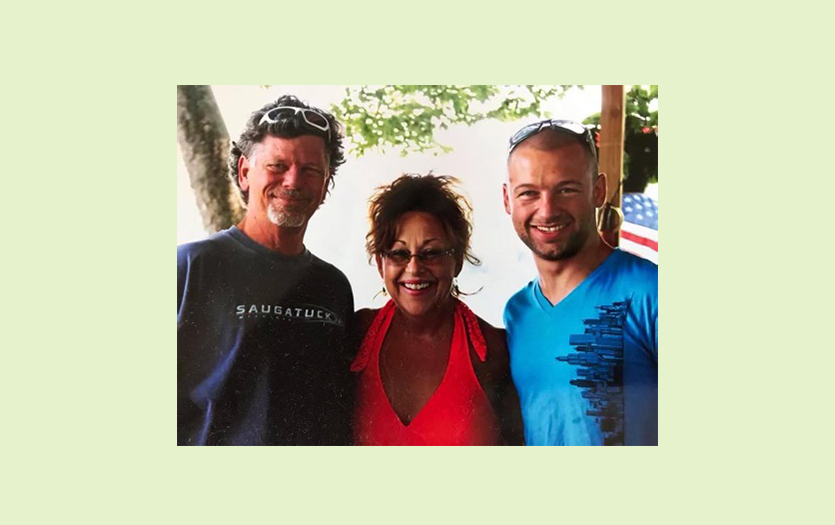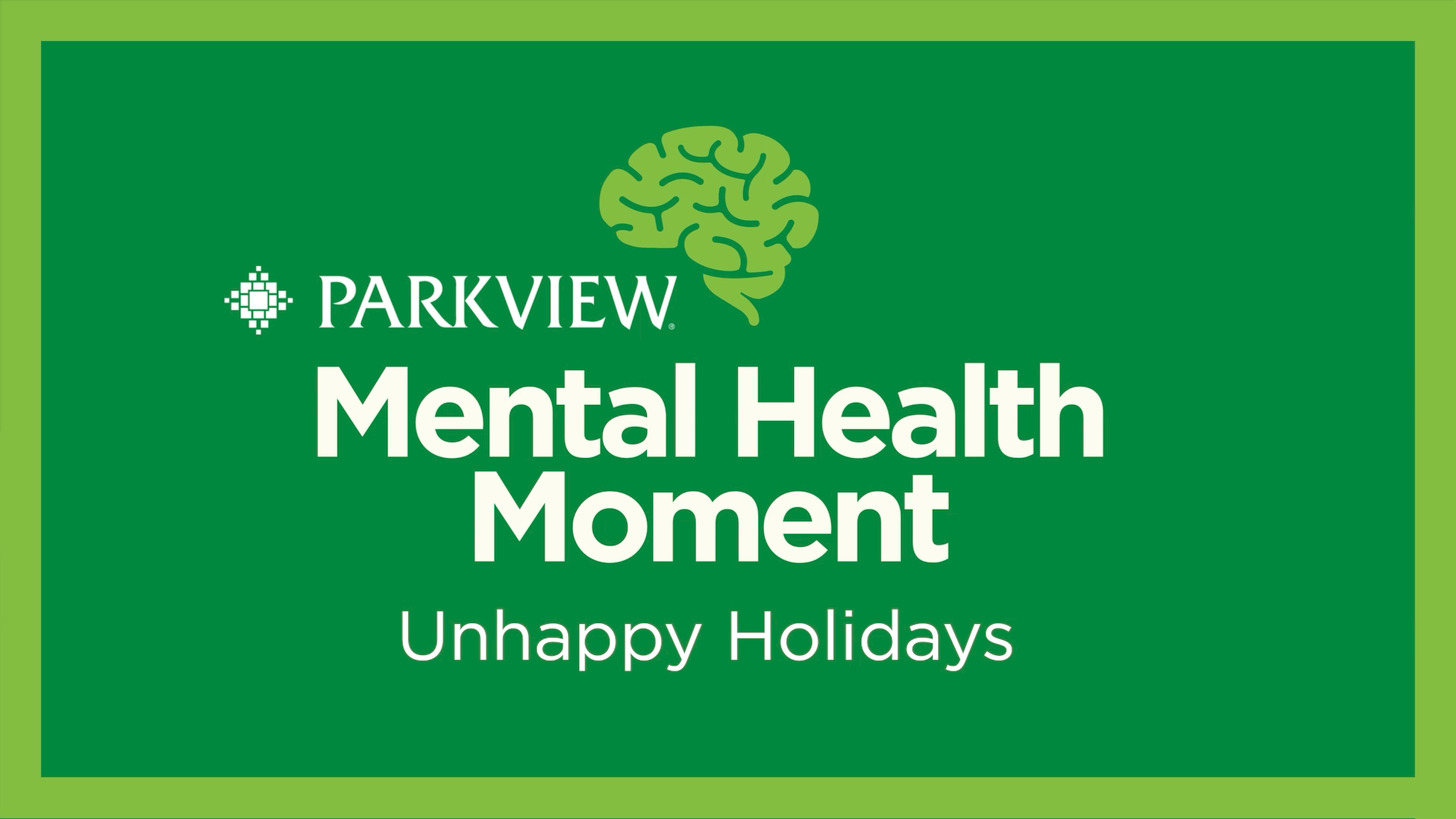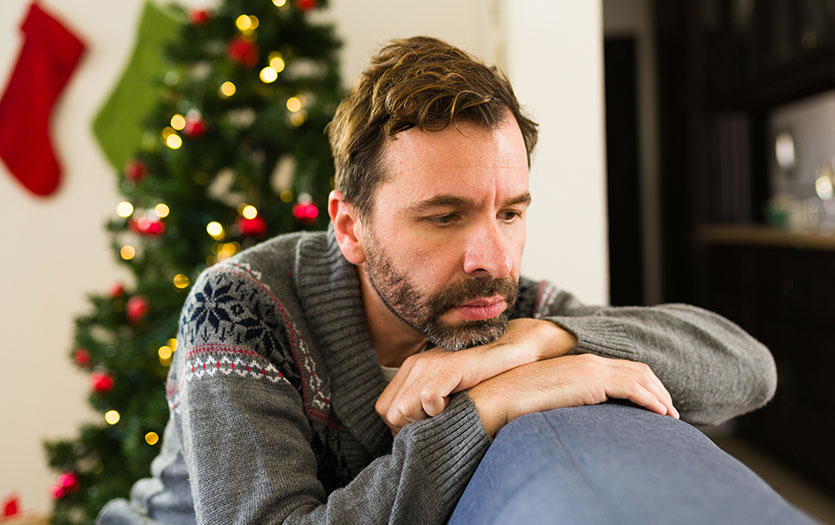
Hans Hofer worked as a land surveyor at his family-owned business for 45 years, just as his father did, and his father’s father did. It was something he didn’t give much thought to, until a rare diagnosis changed everything during his 58th trip around the sun.
On the evening of January 11, 2016, Hans thought he was being hit with a brutal stomach bug. “I kept vomiting,” he recalled. “And then about midway through the night, my balance went bad, and I had to crawl to the bathroom. I waited and told my wife, Denise, the next day and she thought we should see somebody.”
The couple were staying at their lake cottage, which was close to the Parkview Walk-In Clinic in Kendallville. The provider mentioned that Hans’ symptoms could be attributed to a few things, including vertigo or an inner ear infection, among other possibilities. He recommended a CT scan. “He told me that if my face started drooping, I needed to get to the hospital right away,” Hans said. The Hofers returned to their home in Fort Wayne, and, unfortunately, the next day, the clinician’s warning was staring back at Hans. “I woke up that Sunday morning and looked in the mirror. The right side of my face was drooping and my wife said, ‘Get dressed! Let’s go!’”
An elusive diagnosis
Hans went to the Emergency Room at Parkview Regional Medical Center (PRMC), where they did an MRI and CT scan with and without contrast. “The doctor’s first words to me were, ‘You're lucky to be alive!’” Hans recalled.
He was admitted to PRMC, where he met with a handful of neurologists, debating whether or not he had, in fact, had a stroke. Two days into his hospitalization, Hans lost his ability to swallow, and had to have a feeding tube placed.
“They tested me for hundreds of things,” he shared. The team even looped in experts at Cleveland Clinic, thinking he could be experiencing symptoms from some form of cancer. Days into his stay, the clinicians concluded that Hans had an extremely rare, dangerous infection called brainstem encephalitis (BE).
“What I had is known as an acquired brain injury (ABI), as opposed to a traumatic brain injury (TBI),” Hans said. “They never figured out what caused the infection, and to look at an MRI now, you’d never know I had it. But the damage had been done.”
A long treatment journey
“I was getting physical, speech and occupational therapy at PRMC,” Hans shared. “After two weeks, they transferred me by ambulance to inpatient rehab on the fourth floor at Parkview Randallia. I was there for two more weeks. I had to learn how to walk again–my balance was so bad.”
Hans was released from Randallia and sent home to continue his recovery and outpatient rehabilitation. “I had several months of physical and speech therapy,” Hans said. “I was trying to get my swallow back.” In December, after 11 months and a procedure on his throat, his feeding tube was finally removed.
Tough changes
In April 2016, Hans passed the occupational therapist’s test to clear him to drive. “They time how long it takes you to move your foot from the gas to the brake pedal,” he said. “At first, I wasn’t quick enough, but I kept working on it and finally did it.”
Hans co-owned Hofer and Davis, Inc. – land surveyors, a business handed down through generations. “No one could tell me to retire,” he confessed. “My wife, partner and I decided I would go back to work. So, I started driving to the office.
“I've always been kind of slow anyway, but now I was really slow. We were a two-man operation and my partner joked I was going to make us go bankrupt! There was one man doing the majority of the work. He could tell we weren’t going to make it.” The pair made the difficult decision to sell the business in 2018.
It was just another in a series of abrupt shifts that had happened to Hans and his family since the diagnosis. “At first, you really feel sorry for yourself. I can't do this and I can't do that like I used to be able to. But at some point, you have to have gratitude.”
Finding a community
More than 20 years ago, Kristen Smith, OTR/CBIS, started Parkview’s Brain Injury Support Group, to facilitate education, group discussion and resources. She continues to run meetings, with Tanyssa Byram, PTA, CBIS, CCI, GFI, Parkview Inpatient Therapies, Parkview Regional Medical Center.
“This group has helped me in a lot of ways,” Hans said. “I remember, at the first meeting I went to, they said your brain injury affects your family as much as it does you, and that just floored me! For two years I'd been thinking poor me, I can't walk the same, I can't talk the same, I can't eat the same, I’m screwed up. I’d never considered that it impacted my wife, my son or my brother the same way it did me. That was a revelation.
“Relationships can be kind of hard with a brain injury, but I’m lucky. When you've been married almost 40 years, for better or worse, through sickness and health, it's a good thing. Realizing that this has affected her as much as it has me, was one of the first big things I got from the group.”
With a little distance from the initial shock, and a lot of education, Hans is learning about the intricacies of the mental mechanisms we often take for granted, and the details of what happened to him. “This whole thing is a process,” he said. “They say time is on your side with a brain injury, and I know so much more seven years in, than I did one year in. It’s night and day. I had one doctor explain it to me like this: ‘Imagine your brain is a computer. The hard drive is perfectly intact; everything you ever knew is there. But the processor is all messed up. Every time you want to gather information, your brain has to create a new path to get it, and that can take a minute, an hour, a day, a month …’”
But of all the changes Hans has experienced since 2016, the new perspective he’s garnered from his support group meetings might carry the greatest weight. “The biggest reward is knowing that I'm not alone. I really felt like I was out in left field. I would think nobody has ever suffered like this. And then I got to that first meeting and saw what other people are dealing with. Suddenly, I realized that I couldn’t eat normally, but I could eat. Life is just different now."
“I look around and realize it could be worse. I think about the young people a lot. I'm 65. I’m married. I have a son, and he’s an adult now. Some of these kids are experiencing everything with their brain injury. At least I have memories of those days.”
Hans is retired now, and admits that he still faces his share of adversity. “Everything's a struggle. My balance still isn't great, but I go to Turnstone. The trainers there designed a program to work on my balance.”
While his experience is proof that nothing in life is certain, it’s also a testament to the undeniable power of community and connection. “This is just my story. Every brain injury is different and every person is different. No two are the same. But I’m grateful for this group and what it’s taught me. I love it.”
If you or a loved one are navigating a new or existing brain injury, consider attending an upcoming support group meeting. To receive a monthly mailing or e-mail communications, contact group facilitator Kristin Smith, OTR/CBIS, at 260-452-4943 or [email protected].



